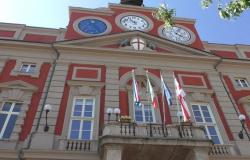A competitive province, but ready to welcome the margins of improvement necessary to make further progress. It is entitled «Parma towards the future – Strategic competitiveness plan for the Parma area» and illustrates the results of the research promoted by the Parma Union of Industrialists which, yesterday afternoon, was exposed by Professor Fernando Alberti, director of the Strategique think tank at Harvard Business School, and which aroused particular interest in those present.
«Parma identifies itself as a strong province from a competitive point of view, both in relation to its economic performance and in relation to social progress», explained Alberti, describing numbers and data that emerged from the multi-stakeholder strategic planning process of which the UPI became a promoter, starting a collaboration with the think tank, born as a spin-off of Professor Michael E. Porter’s chair of Strategy and Competitiveness at the Harvard Business School.
The strategic planning process, as clarified by the expert, developed through the experimentation of a co-planning work that lasted eight months, which involved the analysis and processing of quantitative and qualitative data and individual interviews, with the local stakeholders, representing the public, private, institutional, associative, academic and political spheres.
The conceptual and technical approach underlying the development of this strategic plan was that of the general framework of competitiveness, considered as the ability of a territory to create both economic and social prosperity for businesses and citizens, with the aim of improving their quality and standard of life. «The territory confirms itself as very rich in terms of per capita income (in the Italian Top 10) with a high level of productivity and wages and excellent participation in the workforce – clarified the teacher, recalling how the province confirms itself among the top positions in Italy also when looking at social progress (13th in the ranking of the 107 Italian provinces for the Social Progress Index, the province that has grown the most at a regional level) -. On the dimension of Fundamental Human Needs, Parma is instead weaker, especially in terms of sustainability of rents for families and safety”.
Based on what Alberti explained, the city ranks 82nd in environmental quality and demonstrates “some gaps” in access to knowledge, but in the dimension of Opportunities which looks at personal rights, inclusiveness, advanced education and freedom of individual choice, «Parma is stronger, seventh in Italy». However, “some difficulties emerge in ensuring equal opportunities for some segments of the population, in particular women (47th for gender gap in participation in work) and foreigners (63rd for acquisitions of citizenship)”.
As regards the economic positioning, Parma presents itself as a province «with a large and strong portfolio of consolidated historical industrial specializations (agri-food and livestock, automotive, pharmaceutical, construction, machinery and metalworking, glass industry and cosmetics), which have always been driven by some large companies of international importance and fame and from some emerging specializations that arise to support them (packaging, mechanics and robotics to support the food supply chain, plastic materials to support the construction industry, environmental services for the recovery of materials and waste) ». The analysis, however, also highlights “a strong gap in collaboration between supply chain actors, confirmed by the lack of cluster initiatives (particularly in the food supply chain)”.
This year, the city ranked tenth in the Entrepreneurial Ferment Index, which measures the degree of dynamism, innovation and attractiveness of the ecosystem. «The dimension linked to new entrepreneurship, however, especially young people, is in more difficulty: Parma is only 39th for the incidence of innovative startups and 102nd for businesses with owners under 35 and investments in the initial stages of startups are also very limited – he added Alberti -. Two key points emerge for the strategic planning of the territory: the future competitiveness of the business context is put at great risk by the weakness of the infrastructures for the mobility of goods and people and by the lack of technical skills of the workforce available in the more traditional supply chains”.
The plan also proposed a territorial “value proposition”, which can be a guide and engine for positioning and future strategic direction, looking at the virtuous practices of the most competitive territories in the world. The strategy is divided into three levels, which concern the territory, the supply chains and productivity, the cluster and ecosystem.
Giovanna Pavesi





